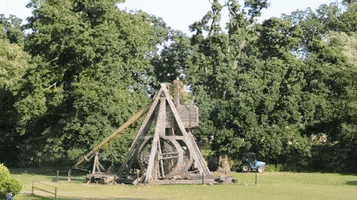Around 8000 Normans settled after the conquest. The population at the time was around 1.5 million.
Those 8000 would now own most of the land though so be in control of the whole country and its wealth.
Towns built up around Norman castles and churches and trade networks were expanded.
Society changed almost overnight.
WIKI debates the consequences of the conquest.
Debate over the conquest started almost immediately. The Anglo-Saxon Chronicle, when discussing the death of William the Conqueror, denounced him and the conquest in verse, but the king's obituary notice from William of Poitiers, a Frenchman, was full of praise. Historians since then have argued over the facts of the matter and how to interpret them, with little agreement.[124] The theory or myth of the "Norman yoke" arose in the 17th century,[125] the idea that Anglo-Saxon society had been freer and more equal than the society that emerged after the conquest.[126] This theory owes more to the period in which it was developed than to historical facts, but it continues to be used to the present day in both political and popular thought.[127]
In the 20th and 21st centuries historians have focused less on the rightness or wrongness of the conquest itself, instead concentrating on the effects of the invasion. Some, such as Richard Southern, have seen the conquest as a critical turning point in history.[124] Southern stated that "no country in Europe, between the rise of the barbarian kingdoms and the 20th century, has undergone so radical a change in so short a time as England experienced after 1066".[128] Other historians, such as H. G. Richardson and G. O. Sayles, believe that the transformation was less radical.[124] In more general terms, Singman has called the conquest "the last echo of the national migrations that characterized the early Middle Ages".[129] The debate over the impact of the conquest depends on how change after 1066 is measured. If Anglo-Saxon England was already evolving before the invasion, with the introduction of feudalism, castles or other changes in society, then the conquest, while important, did not represent radical reform. But the change was dramatic if measured by the elimination of the English nobility or the loss of Old English as a literary language. Nationalistic arguments have been made on both sides of the debate, with the Normans cast as either the persecutors of the English or the rescuers of the country from a decadent Anglo-Saxon nobility.[124]
https://en.wikipedia.org/wiki/Norman_co ... ermarriage
